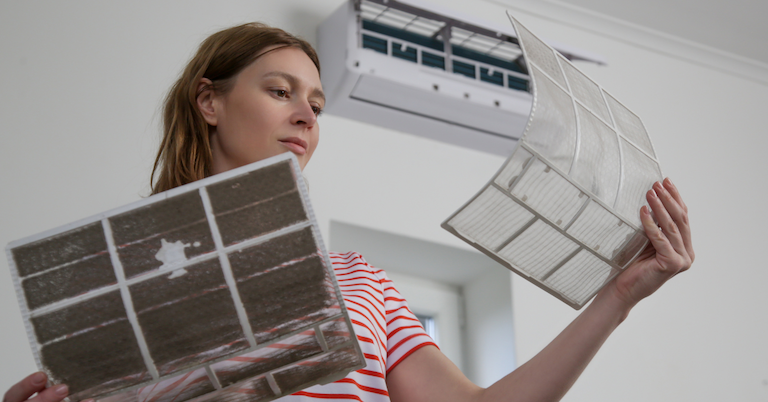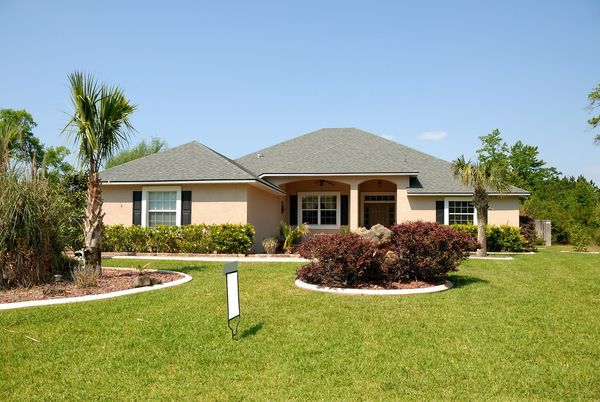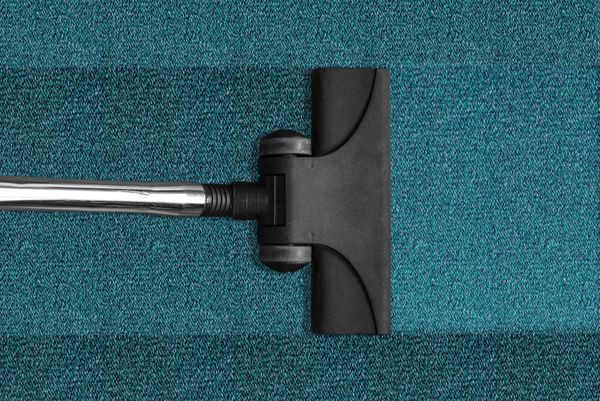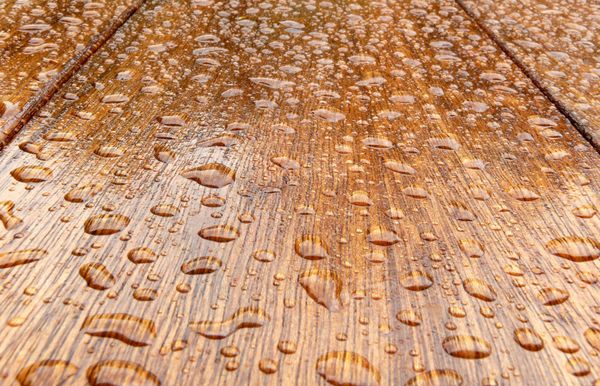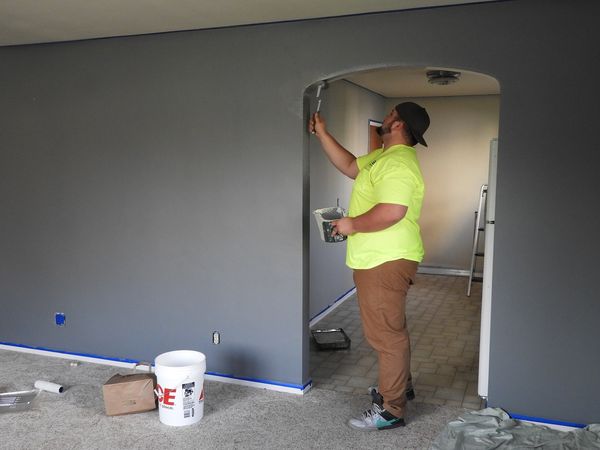The air filters in your cooling system play an important role in maintaining the overall air quality within your home. The interval with which you replace the filters is crucial to maintaining a healthy and conducive interior atmosphere.
As one of the routine maintenance tasks for homeowners, make it a priority to regularly inspect the air filters every month, especially during months of continuous use. If the air filters appear excessively dirty, don't hesitate to replace them immediately. Generally, it's best to change the filters every three months to ensure proper ventilation, keep the indoor air quality clean, and minimize your cooling system's energy consumption every month.
If you've been skipping monthly air filter replacements, here are some of the benefits you need to know why it's crucial to change the air filters regularly.
1.) Improves Airflow Throughout Your House
The air filters play a crucial role since they're responsible for keeping the indoor air quality healthy. The filters trap unwanted elements such as dirt, dust, animal dander, pollen, spores, and bacteria.
A dirty air filter can make the indoor air environment unappealing. Generally, it prevents the air from fully circulating in your home. As dust and debris accumulate in the filters, limited airflow eventually leads to poor ventilation.
The rule of thumb is to replace the air filters every three months and inspect them monthly to see if there's any debris or dirt buildup. Making sure the filters are clean allows them to capture as much dirt or debris as possible, keeping your home healthy. If you're going to change them soon, you might want to purchase 16x25x1 filters here.
You can replace the filters yourself, but if you lack the time or want to get it right the first time, consider employing the services of a professional to handle the cleaning or replacing of the air filters.
2.) Maintains Energy Efficiency And Extends The Cooling System's Lifespan
Replacing your air filters regularly can help reduce the energy required to run your cooling system. When the air filters are dirty, the system has to work harder, and it consumes an immense amount of energy in the long run. You'll end up with skyrocketing utility bills.
With this in mind, replacing the air filters regularly will ensure that the system does not strain to cool or heat your home.
Another advantage of changing your air filters on a regular basis is that it extends the functional lifespan of your system. Since the system doesn't have to strain as it operates continuously, it helps lessen the wear on the unit, prolonging its overall lifespan. Remember that an overworked system is likely to break down sooner. If you don't want to incur additional repair costs, make sure to replace the air filters on a regular basis.
3.) Better Home Temperature Control
When you change the air filters regularly, the system will function more efficiently by generating the right amount of warm or cool air. Clean filters allow air to flow freely, letting the system maintain the internal temperature of your home better. Remember that maintaining the proper indoor temperature in your home is critical in preventing mold growth.
It would be best to integrate a smart thermostat into your system to maximize the ideal temperature in your home while helping you save on energy costs. Additionally, the addition of a smart thermostat is also a must-have feature potential home buyers check on, especially if you're going to sell your home in the future.
4.) Minimizes The Likelihood Of Triggering Allergies
Minimizing the number of allergens present in your home is also one of the benefits you'll gain if you regularly change the air filters. Maintaining an allergen-free indoor environment is critical when a family member suffers from allergies.
Some of the allergy triggers include pollen, dust, and animal dander, to name a few. Regularly replacing the air filters will improve air circulation while effectively trapping dirt, dust, and other debris.
Household members suffering from allergies, asthma, and other respiratory issues can greatly benefit from having clean air filters. Make it a priority to change the air filters often or consider getting an air purifier if family members tend to suffer from constant episodes of itchy nose, congestion, or difficulty breathing. Routine maintenance, including replacing the air filters, can promote better sleep.
5.) Reduces The Frequency Of Repairs
Be prepared for costly repairs if your home's heating and cooling system fail. You can avoid frequent repairs down the road by providing your system with regular maintenance and changing the air filters. By preventing system damage, you reduce the likelihood of having to pay for costly repairs. Common problems are temperature fluctuations, skyrocketing utility bills, unusual sounds, and unpleasant odors. A clogged or worn-out air filter causes these problems in most cases.
Final Thoughts
The benefits of maintaining a clean air filter in your HVAC system cannot be overstated. Regularly changing your air filter is a simple yet effective way to improve home air quality and enhance your living environment. Dirty air filters not only impede the ability of your system to push air efficiently but also compromise the overall home air quality. By ensuring that your air filters are not clogged, you not only foster a healthier indoor atmosphere but also contribute to the longevity and efficiency of your HVAC system. Remember, a clogged filter forces your system to work harder, leading to increased wear and tear.
Furthermore, changing your air filter regularly is a cost-effective measure to improve energy efficiency and save money in the long run. Clogged air filters cause your system to consume more energy, leading to higher utility bills. By keeping your air filters clean, you reduce the strain on your HVAC system, thereby reducing the likelihood of costly repairs and extending its lifespan. In summary, the small act of regularly replacing your home's air filters has significant benefits, making it an essential practice for maintaining a healthy, efficient, and cost-effective home environment.

